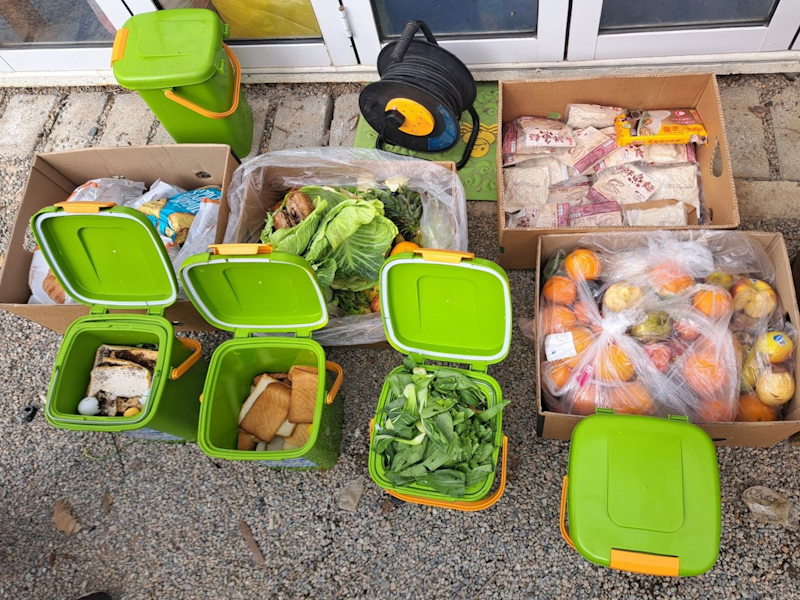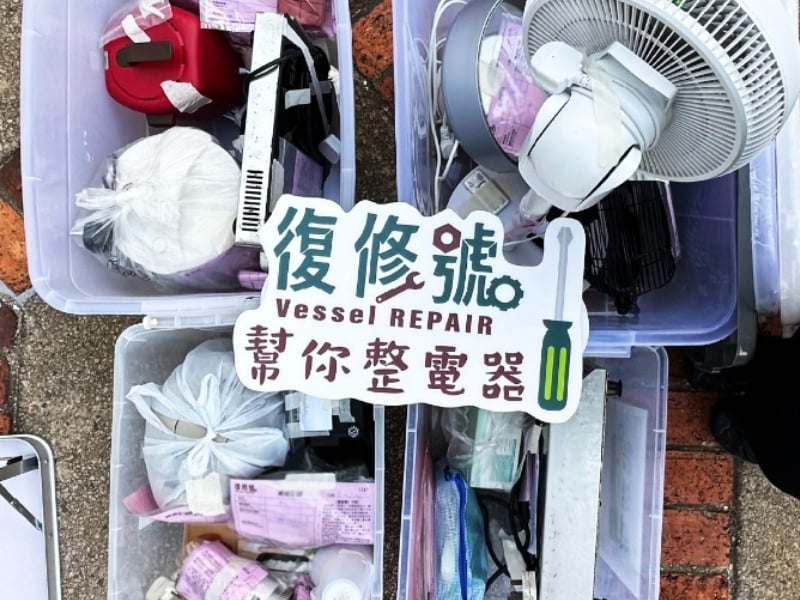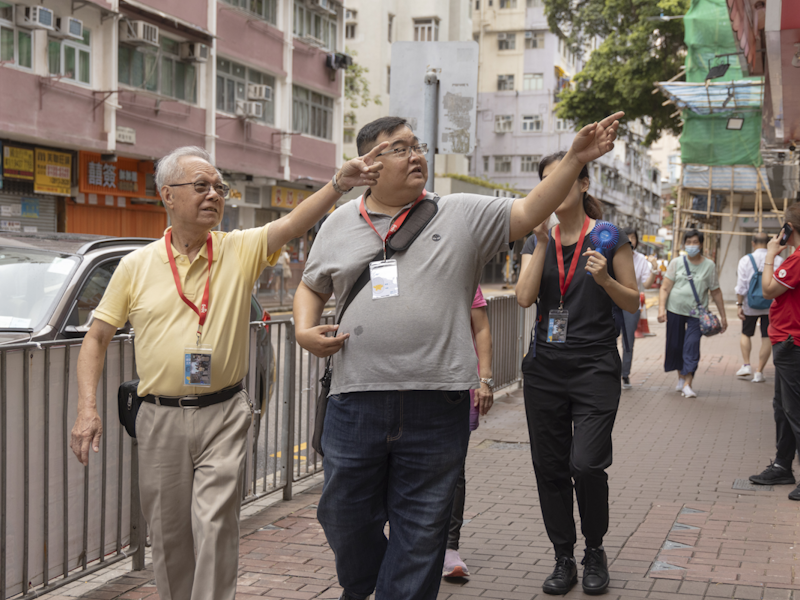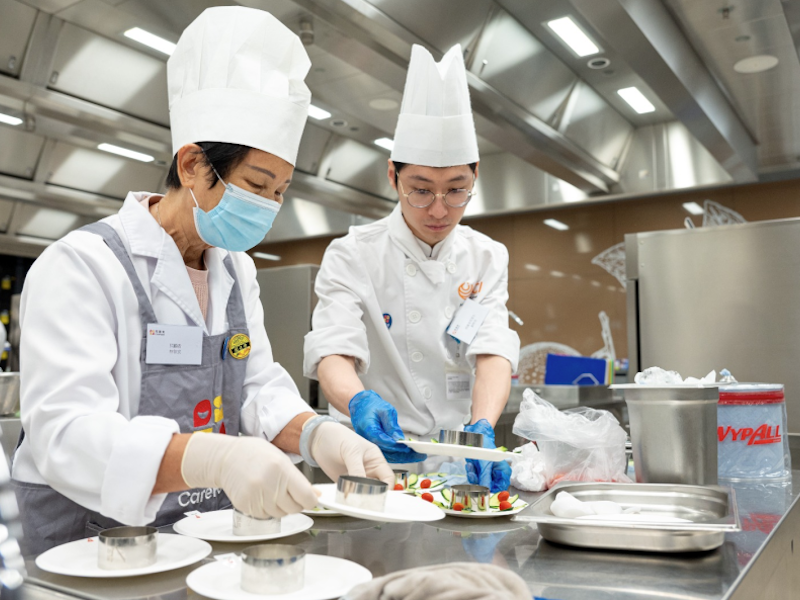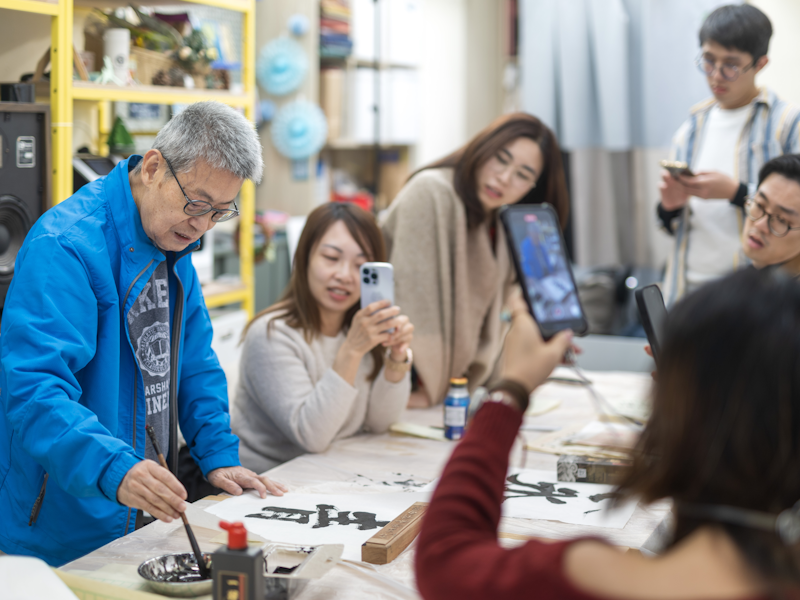
In Sheung Wan, Project House @1QRW (“Project House”) is not merely a gathering place but a catalyst for fostering community partnerships, transformation and support network. Co-funded by ZeShan Foundation and Chow Tai Fok Charity Foundation and co-operated by Caritas and One Bite Social, this initiative is aimed at building a vibrant hub of community activities and mutual support to combat loneliness among some residents in the district. Located at 1 Queen’s Road West, as a historical shop formerly reputed for selling Cantonese siumei, Project House leverages the strengths of traditional social work and creative, community-centric approaches to address urban social challenges.
One Bite Social is a community-empowering and life-giving arm created by One Bite Design Studio. As a key partner in Project House, One Bite Social brings our unique ethos of creative changemaking to the table. It champions a community-driven and human-centric approach to urban space design and utilization. With a pool of creative talents at One Bite Design, One Bite Social has been gearing social-private collaborations and pioneering urban innovations with social impact. Creating or curating delightful daily surprises for the community is our team’s humble vision. We take on a multifaceted approach, focusing on Experimentation, Creative Partnership, and Co-Learning.
Cross-Sectoral Collaboration
In Project House, our collaboration showcases how aligning different sectors can enhance the effectiveness of social initiatives. One Bite Social and Caritas bring together disparate expertise, blending innovative creative practices with established methods of social work. This partnership not only broadens the scope of what can be achieved but also deepens the impact of each organization’s efforts. For instance, we co-created many district-based activities, such as Sheung Wan Sewing Squad and White Space, to meet community needs through creative and inclusive approaches. These activities provide skills training, foster community bonds, and enhance local resilience. While the Caritas team is contributing with their expertise in building bonding with kaifong (residents), these activities do not stop at social work level. One Bite Social is trying hard to turn the outcomes of these activities into more self-sustainable models that can export kaifong’s capability to meet other neighbors’ needs. The rich iterative process at Project House is uncommon yet powerful in the local social work scene. And this can only be achieved through the creative partnerships between One Bite Social and Caritas.
Growing Together
This collaboration also represents a mutual learning journey for both organizations involved. It requires aligning languages, adapting working habits, and fine-tuning mindsets. By integrating the best traits from each team, the project not only progresses towards its objectives but also exemplifies effective cross-sectoral collaboration. With a shared vision, the teams are better equipped to carefully address and evolve through the nuances and challenges that arise.
Broader Implications for Social Change
The success of Project House raises important considerations for the broader social service sector. It demonstrates the potential of creative collaborations in generating more nuanced and effective solutions to social problems. More importantly, it highlights the need for flexibility in partnerships and the benefits of integrating diverse perspectives into social service design and delivery.
In conclusion, the work being done at Project House and the broader initiatives led by One Bite Social represent a forward-thinking approach to social change. By continuing to embrace these creative partnerships and learning from each venture, we not only respond to but also shape the evolving landscape of our communities, making every small change count towards a larger, collective impact.
Sarah Mui
In Sheung Wan, Project House @1QRW (“Project House”) is not merely a gathering place but a catalyst for fostering community partnerships, transformation and support network. Co-funded by ZeShan Foundation and Chow Tai Fok Charity Foundation and co-operated by Caritas and One Bite Social, this initiative is aimed at building a vibrant hub of community activities and mutual support to combat loneliness among some residents in the district. Located at 1 Queen’s Road West, as a historical shop formerly reputed for selling Cantonese siumei, Project House leverages the strengths of traditional social work and creative, community-centric approaches to address urban social challenges.
Changemaker from Other Side of Spectrum
One Bite Social is a community-empowering and life-giving arm created by One Bite Design Studio. As a key partner in Project House, One Bite Social brings our unique ethos of creative changemaking to the table. It champions a community-driven and human-centric approach to urban space design and utilization. With a pool of creative talents at One Bite Design, One Bite Social has been gearing social-private collaborations and pioneering urban innovations with social impact. Creating or curating delightful daily surprises for the community is our team’s humble vision. We take on a multifaceted approach, focusing on Experimentation, Creative Partnership, and Co-Learning.
Cross-Sectoral Collaboration
In Project House, our collaboration showcases how aligning different sectors can enhance the effectiveness of social initiatives. One Bite Social and Caritas bring together disparate expertise, blending innovative creative practices with established methods of social work. This partnership not only broadens the scope of what can be achieved but also deepens the impact of each organization’s efforts. For instance, we co-created many district-based activities, such as Sheung Wan Sewing Squad and White Space, to meet community needs through creative and inclusive approaches. These activities provide skills training, foster community bonds, and enhance local resilience. While the Caritas team is contributing with their expertise in building bonding with kaifong (residents), these activities do not stop at social work level. One Bite Social is trying hard to turn the outcomes of these activities into more self-sustainable models that can export kaifong’s capability to meet other neighbors’ needs. The rich iterative process at Project House is uncommon yet powerful in the local social work scene. And this can only be achieved through the creative partnerships between One Bite Social and Caritas.
Growing Together
This collaboration also represents a mutual learning journey for both organizations involved. It requires aligning languages, adapting working habits, and fine-tuning mindsets. By integrating the best traits from each team, the project not only progresses towards its objectives but also exemplifies effective cross-sectoral collaboration. With a shared vision, the teams are better equipped to carefully address and evolve through the nuances and challenges that arise.
Broader Implications for Social Change
The success of Project House raises important considerations for the broader social service sector. It demonstrates the potential of creative collaborations in generating more nuanced and effective solutions to social problems. More importantly, it highlights the need for flexibility in partnerships and the benefits of integrating diverse perspectives into social service design and delivery.
Every Small Change Counts
In conclusion, the work being done at Project House and the broader initiatives led by One Bite Social represent a forward-thinking approach to social change. By continuing to embrace these creative partnerships and learning from each venture, we not only respond to but also shape the evolving landscape of our communities, making every small change count towards a larger, collective impact.
Sarah Mui
Catalyzing Community Transformation
Co-founder
One Bite Social
Co-founder
One Bite SocialRelated Link








